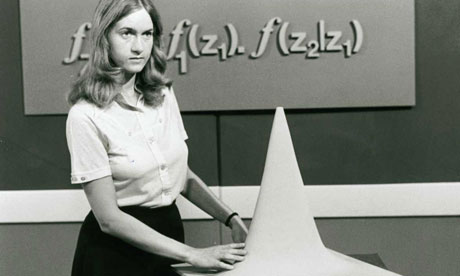I've been reading a lot about MOOCs lately, partly because one of my favourite blogger's Donald Clark has written a fair few articles on the subject but also because I have this thing about the current education system which from experience through childhood to adulthood I forget about and then when I became a parent I suddenly started to take an interest again.......and I have to say I have some real issues and concerns about the current state of play but that is not for now....I will keep that until parents night.
Anyhooo... I was pointed to an article about video the other day, its growing use in education and the MOOC (Massive Open Online Courses) revolution (the authors word not mine). A lot of the article referred to Futurelearn and how it plans to change the way MOOCs are viewed. There was a couple of references from one person to the next, mostly one company versus another. Futurelearn say that early MOOCs were little more than some videos with content wrapped around it, interestingly their radical approach is eh....some videos with slides and discussion broken down into blocks and units !!! Okay.....erm......so very different? Okay to be fair to them they are talking about starting with mobile and working up instead of retrofitting and that could be a big plus but something still doesn't sit right with me just yet......I still need convinced.
Now Futurelearn do know a little about using video for education, after all how many of us stumbled in after a night out and found ourselves watching an Open University programme as we munched our way through a kebab?.....okay perhaps just me but given that they own Futurelearn it could be that they have a lead on some of their rivals like Udacity and Coursera but one of the things that strikes me most is that the Education sector is trying to stake a claim of ownership on what in business some people have been doing for some time and I get more than a little peeved as I read about how MOOCs are made out to be something new exciting and radical but really it's just higher education playing catch up after realising that the blank looks in the lecture hall are actually empty seats.
So, Open University are well placed to position themselves in the market which is merely an extension of what they already do and the likes of City & Guilds who with the recent acquisition of Kineo must be considering similar entrance into the land of MOOC but as bring your own device and curation are more to the fore now, is the day of the MOOC ever going to arrive or is academia going to continue to claim it for themselves and dismantle the very idea of it? All this happening because education can no longer dismiss what a lot of us have been saying and doing for years but it's the ferocity of which that has ramped up recently. Universities are adding MOOCs every other day but I still need convinced.
Speaking of the dismantle, MOOC ! Massive, Ooooh, is it 10, 100, 1000, 10000 users? it's irrelevant given the fact you have called it Open, Eh so anyone can join? but then I suppose OOC sounds rubbish. Online, okay we are getting somewhere. Then finally you come to Course, why do we ever use this word? Far too structured for my liking. Okay, I know it requires some structure but there needs to be more freedom and flexibility around the content yet the juggernaut keeps rolling on and the education playground has become a battleground and that only adds to my frustration, and I wonder is it all a Wrath on Khan?
Salman Khan, an M.I.T grad started producing video tutorials back in 2006 and posting them on You Tube. Doing this meant he could offer sessions to a wider audience. This concept grew quickly to the point that Salman left his job in 2009 to commit full time to the company. Now despite MIT open course ware and MOOCs kicking around at the same time, the fact that Khan Academy has had about 5 times the number of views on videos as the MIT stuff and twice as many subscribers, you wonder if it is this success that has contributed to the sudden push on creating courses. Is it with this they sat up and wanted to create their own success? Who knows......If executed well it could be a good thing as perhaps they are now more open to change and bringing what was for some seen as potentially elitist in terms of accessibility but there is caution as mentioned before where they are trying to make this sound different and this could reverse the openness and goal that they set out to achieve....you only have to look at the word "change" in all of this. I read a comment about how a faculty to deliver MOOCs could be selected and rather than saying they would change the way they do things they said it would disrupt it. Okay maybe just a word but if you want to increase they way you make education more open to the world, keep it simple and clear.
Quality must be first and foremost in the mind of the curator who builds a MOOC. Build it to be different to the experience of the classroom, use the tools (like Futurelearn) that people use and make it as easy as reaching into your back pocket and pulling out a phone. Make the content suitable, not just some hastily pulled together slide pack and introduce flexibilty that lets people build their own. Make it as non academic as possible, if it's a chalk and talk experience like watching an old skool O.U programme users could switch off. Explore interaction, flash MOOC events online and offline. Just make it an experience.
Now I have actually be writing this a few days now as every time I sat down to type, I looked up a little bit more on MOOCs so take this as part one, I am going to delve a little deeper with the thought that I want my perception changed. Not as a person with an opinion but as a participant.
Stay Tuned.
That Learning Dude @LearningXDude


